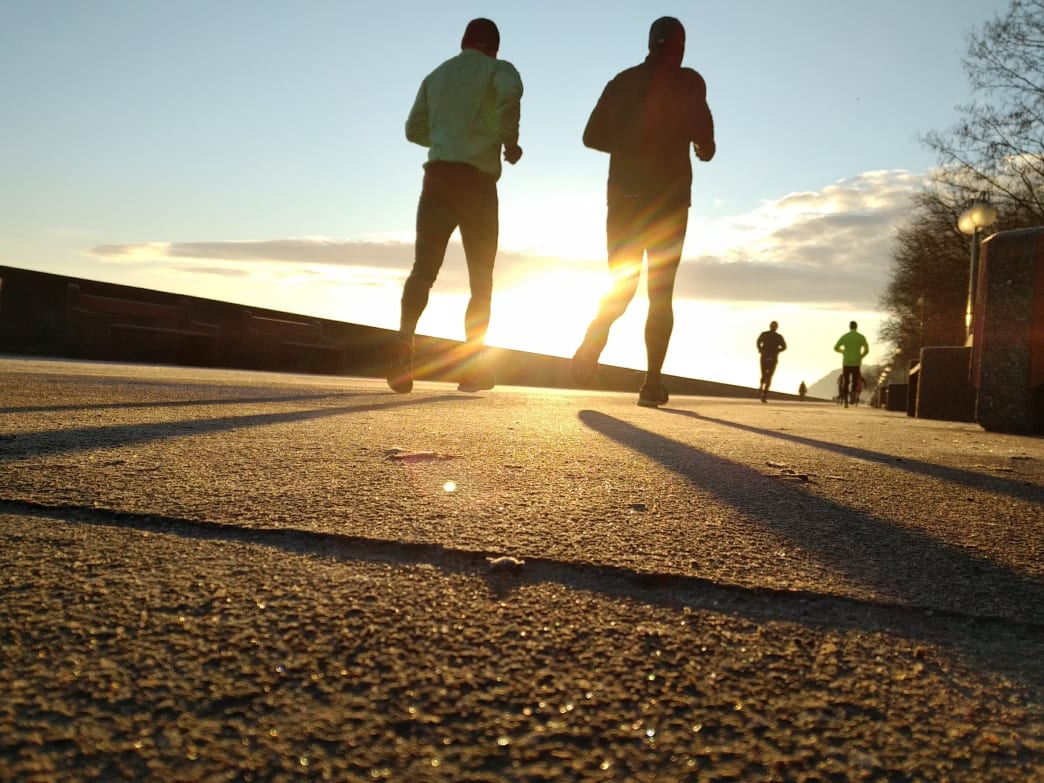
How Much Exercise Do I Really Need to Live Healthier?
Years ago, I had an elderly patient I loved to visit. She had a huge personality, a quick mind (and tongue), and a sense of humor that would leave you gasping for air. She was just one of those people that others loved to spend time with. She also had the worst case of diabetes I'd ever encountered. She was taking huge doses of four types of insulin and needed to check her blood sugar six times a day. During one visit, I made a call to her doctor to discuss her steadily rising blood sugars. "I can't put her on anything else," he said. "She's going to have to exercise to help bring it down." Well, for most folks, a little exercise wasn't such a big deal. But for this gal, even getting to the bathroom was a chore. She was blind, severely obese, and had difficulty breathing to boot.
I broke the news to her, and told her we'd do it together. We started small, mostly because we had to. We started with taking three steps every time I came to see her. We ventured outside on nice days to pull weeds out of her flowerbeds for 10 minutes. She did the pots; I did the beds. It wasn't much, but we keep at it everyday.
After a month, we added walking from the door of the bathroom to the toilet once a day. The next month, we upped it to three times a day. After six months, she was walking down the hall three times a day in addition to her other exercise activities. It was enough to help keep her blood sugars from rising and we were able to lessen her insulin dosages a bit. Her doctor was ecstatic. It was hard work, but we kept pushing ahead, even on the tough days. Some days, we could only get in a few steps, but it was more movement than sitting in the wheelchair, so we gladly took it.
The Average Exercise Overhaul
So many times, the average person who wants to live healthier jumps into the exercise ring with both feet. They throw out all the junk food, vow to eat sprouts and drink water, and go to the gym everyday. The whole thing lasts for about two weeks, and then they find themselves overwhelmed, eating chips in front of the TV and yelling at Beach Body commercials. We have great intentions and tons of motivation to start, but the change is too much, too soon. We think we should model ourselves after that great-looking guy or gal in the office that runs marathons and never even blinks at a piece of birthday cake. In reality, it took years for that person to reach that physical form and it won't work for us.
Small Steps Equal Big Changes
The truth is, just like my patient, any small change you make to your exercise routine helps make you healthier. Start small and build on your habits as you become comfortable with each change. Here are some ideas to help you get started.
- Park in the farthest corner of the parking lot at work or when you go shopping.
- Avoid the elevator and hit the stairs.
- Go for a walk on your lunch break.
- Play ball with your kids once a week for fifteen minutes.
- Use a mini-trampoline to do rebounding exercises while you wait for the morning coffee to brew.
- Walk in place for one minute when you begin to feel fatigued at your desk.
- Engage in sexual activity once a week.
This principal applies to other healthy habits in your life as well. Try these small changes to start living healthier:
- Replace one can of soda or tea with a glass of water every day.
- If you smoke, try smoking half a cigarette (instead of a full one) once during the day.
- Reach for some fruit or fresh veggies when tempted to snack on junk. If you're still craving the junk an hour later, go ahead and give in – at least you got in some healthy nutrients.
- Go to bed ten minutes earlier than usual.
- Sit near a sunny window or go outside for five minutes every morning.
- Spend ten minute alone, sitting quietly before going downstairs to start your day.
Enlist a partner to help hold you accountable to each new small change you implement and make a list of what you will gain by living healthier to help keep you motivated. When you live healthier, you not only feel better, but you spend less time at the doctor's office, take fewer medications, and save money on your life insurance premiums.
Written by Jamie Simmerman for MoneyNing and legally licensed through the Matcha publisher network. Please direct all licensing questions to legal@getmatcha.com.

